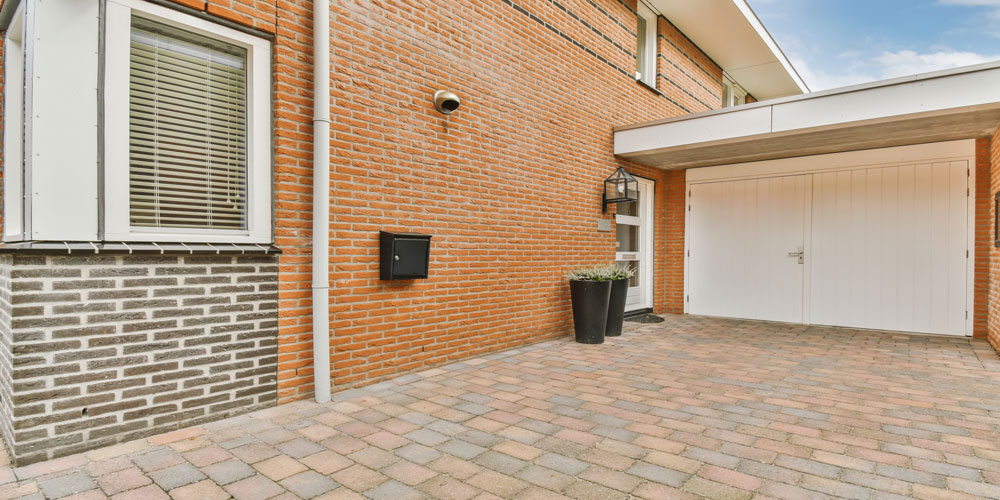Improve Your Home with a New Driveway
A well-designed and expertly paved driveway can significantly enhance the curb appeal, functionality, and overall value of your home. Whether you’re building a new home or updating an existing property, choosing the right type of paving for your driveway is crucial. In this comprehensive guide, we’ll explore various paving options, their benefits, and the steps involved in creating a beautiful and durable driveway.
The Importance of a Paved Driveway
A driveway serves as the first impression of your home. It’s the pathway that leads guests and residents from the street to your doorstep. A well-maintained and aesthetically pleasing driveway not only adds to the visual appeal but also offers practical benefits:
- Increased Property Value: A quality driveway can significantly increase the market value of your home.
- Enhanced Curb Appeal: A beautiful driveway enhances the overall look of your property, making it more attractive to visitors and potential buyers.
- Durability and Functionality: A properly paved driveway can withstand heavy vehicles and harsh weather conditions, reducing the need for frequent repairs.
- Safety: Paving reduces the risk of tripping and provides a smoother surface for walking and driving.
Types of Driveway Paving
There are several paving options available, each with its own set of advantages and aesthetic appeal. The choice of material depends on various factors including budget, climate, and personal preference. Let’s delve into the most popular types of driveway paving:
- Block Paving
- Concrete Paving
- Asphalt Paving
- Gravel Driveways
- Resin-bound Paving
- Paver Stones
Block Paving
Block paving is one of the most popular choices for residential driveways due to its versatility and aesthetic appeal. It involves laying individual bricks or blocks in various patterns.
Advantages of Block Paving:
- Aesthetic Versatility: Available in various colors, shapes, and sizes, allowing for customized designs.
- Durability: Can withstand heavy loads and harsh weather conditions.
- Repair and Maintenance: Easy to repair; damaged blocks can be replaced individually without disturbing the entire driveway.
- Permeability: Allows water to drain through, reducing surface water runoff and minimizing the risk of flooding.
Common Block Paving Patterns:
- Herringbone: A strong, interlocking pattern that is ideal for high-traffic areas.
- Basket Weave: A classic pattern that gives a traditional look.
- Stretcher Bond: Simple and effective, often used for paths and patios.
Concrete Paving
Concrete is a durable and cost-effective option for driveways. It can be poured and shaped to fit the specific dimensions and design of your driveway.
Advantages of Concrete Paving:
- Durability: Long-lasting and can handle heavy vehicles.
- Low Maintenance: Requires minimal upkeep compared to other materials.
- Versatility: Can be stamped or colored to mimic the look of stone or brick.
- Cost-Effective: Generally less expensive than other paving options.
Types of Concrete Finishes:
- Stamped Concrete: Imitates the look of stone, brick, or other materials.
- Exposed Aggregate: Reveals the natural textures of the aggregate materials within the concrete.
- Colored Concrete: Adds visual interest with various hues.
Asphalt Paving
Asphalt is a popular choice for driveways due to its smooth finish and quick installation process.
Advantages of Asphalt Paving:
- Cost-Effective: Generally cheaper than concrete and other materials.
- Quick Installation: Can be laid and ready to use in a short period.
- Smooth Surface: Provides a sleek and even surface for driving.
- Durability: Can last for many years with proper maintenance.
Considerations:
- Maintenance: Requires periodic sealing to maintain its appearance and durability.
- Temperature Sensitivity: Can soften in high temperatures and crack in extreme cold.
Gravel Driveways
Gravel is a budget-friendly option that provides a rustic and natural look.
Advantages of Gravel Driveways:
- Cost-Effective: One of the most affordable paving options.
- Easy Installation: Quick and simple to install.
- Permeability: Excellent drainage properties, reducing water runoff.
- Customization: Available in various colors and sizes.
Considerations:
- Maintenance: Requires regular raking and adding more gravel over time.
- Stability: Can shift under heavy use, leading to uneven surfaces.
- Dust and Dirt: Can generate dust and debris, which may be a concern for some homeowners.
Resin-bound Paving
Resin-bound paving combines aggregates with resin to create a smooth, permeable surface.
Advantages of Resin-bound Paving:
- Aesthetic Appeal: Smooth and seamless finish with a wide range of colors and textures.
- Durability: Resistant to cracks and damage from weather conditions.
- Low Maintenance: Requires minimal upkeep compared to other paving options.
- Permeability: Allows water to drain through, reducing the risk of flooding.
Considerations:
- Cost: Can be more expensive than other options due to the materials and installation process.
- Installation: Requires professional installation to ensure proper mixing and laying of the resin and aggregates.
Paver Stones
Paver stones offer a luxurious and elegant look for driveways. They come in various materials such as natural stone, concrete, and brick.
Advantages of Paver Stones:
- Aesthetic Appeal: Highly customizable with various colors, shapes, and patterns.
- Durability: Strong and long-lasting, ideal for heavy traffic areas.
- Repair and Maintenance: Damaged pavers can be replaced individually without disturbing the surrounding areas.
- Permeability: Allows for water drainage, reducing surface runoff.
Considerations:
- Cost: Generally more expensive due to the materials and labor involved.
- Installation: Requires skilled labor for proper placement and alignment.
Steps to Install a New Paved Driveway
Installing a new paved driveway involves several steps to ensure a durable and attractive result. Here’s a general overview of the process:
- Planning and Design:
- Assess the area to be paved and determine the dimensions.
- Choose the type of paving material and design pattern.
- Obtain necessary permits if required by local regulations.
- Site Preparation:
- Clear the area of any existing vegetation, debris, or old pavement.
- Excavate the area to the required depth, typically 8-12 inches.
- Ensure proper drainage by creating a slight slope away from buildings.
- Base Layer Installation:
- Lay a geotextile fabric to prevent weed growth and stabilize the soil.
- Add a base layer of crushed stone or gravel, compacting it thoroughly to create a stable foundation.
- Edging Installation:
- Install edging materials such as concrete or metal to define the driveway’s borders and prevent shifting.
- Paving Installation:
- Lay the chosen paving material according to the design pattern.
- Use a plate compactor to press the paving material into the base layer.
- Ensure even spacing and alignment of the paving blocks or stones.
- Joint Filling:
- Fill the joints between paving blocks or stones with sand or a suitable jointing compound.
- Compact the surface again to ensure stability and evenness.
- Sealing (if applicable):
- Apply a sealant to protect the surface from stains and weather damage (particularly for asphalt and concrete driveways).
- Final Inspection:
- Check for any irregularities or areas that need adjustment.
- Ensure proper drainage and that the driveway meets all design specifications.
Maintaining Your Paved Driveway
Proper maintenance is essential to extend the life and appearance of your paved driveway. Here are some tips for maintaining different types of paved driveways:
- Block Paving: Regularly sweep the surface to remove debris. Replenish joint sand as needed and replace any damaged blocks.
- Concrete Paving: Clean with a pressure washer and apply a sealant every few years to protect against stains and cracks.
- Asphalt Paving: Seal the surface every 2-3 years to maintain its appearance and prevent cracks.
- Gravel Driveways: Rake the surface periodically to maintain an even layer and add more gravel as needed.
- Resin-bound Paving: Sweep regularly to remove debris and prevent weed growth. Clean with a mild detergent and water.
- Paver Stones: Clean with a pressure washer and replenish joint sand. Replace any damaged stones promptly.
Paving for your Driveway
Choosing the right type of paving for your driveway is an important decision that affects the functionality, appearance, and value of your home. Each paving material offers unique benefits and considerations, so it’s crucial to assess your specific needs, budget, and aesthetic preferences. Whether you opt for the classic appeal of block paving, the durability of concrete, the affordability of asphalt, the rustic charm of gravel, the sleek finish of resin-bound paving, or the elegance of paver stones, a well-executed driveway will enhance your home’s curb appeal and provide lasting satisfaction.
Investing in a new paved driveway is not just about enhancing the look of your property; it’s about creating a welcoming entrance that reflects your style and provides a durable, functional space for years to come. With proper planning, professional installation, and regular maintenance, your new driveway will be a worthwhile addition to your home, adding beauty, value, and convenience.



